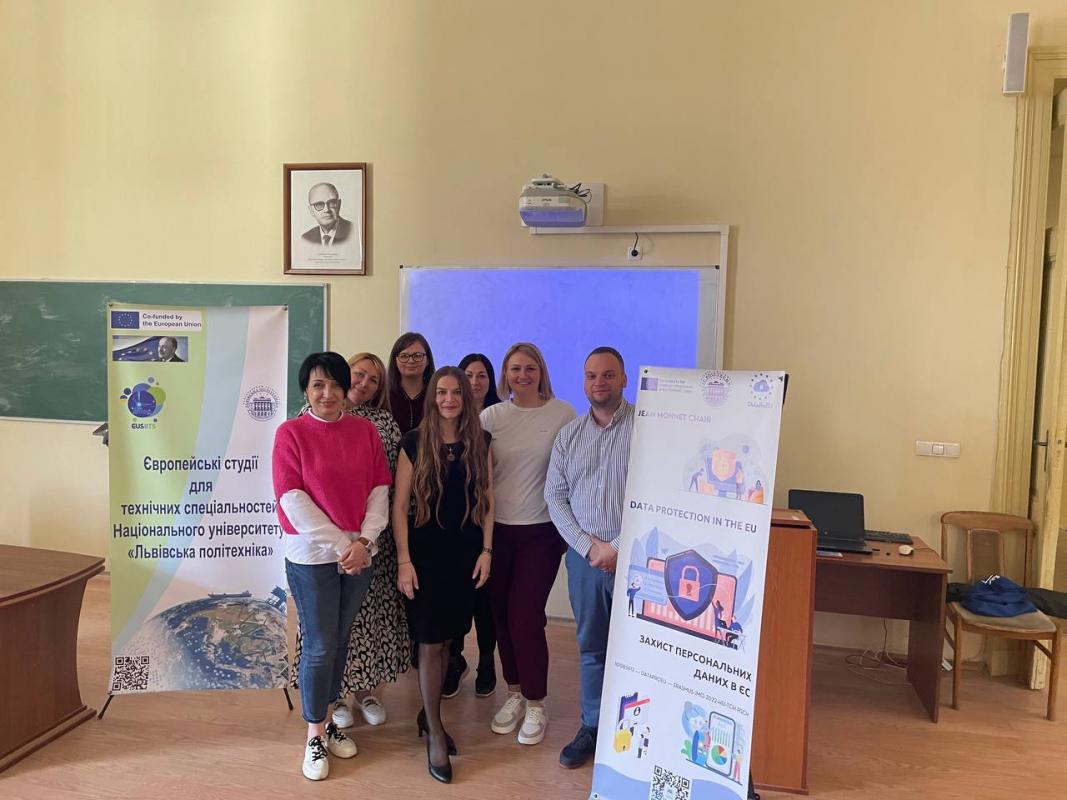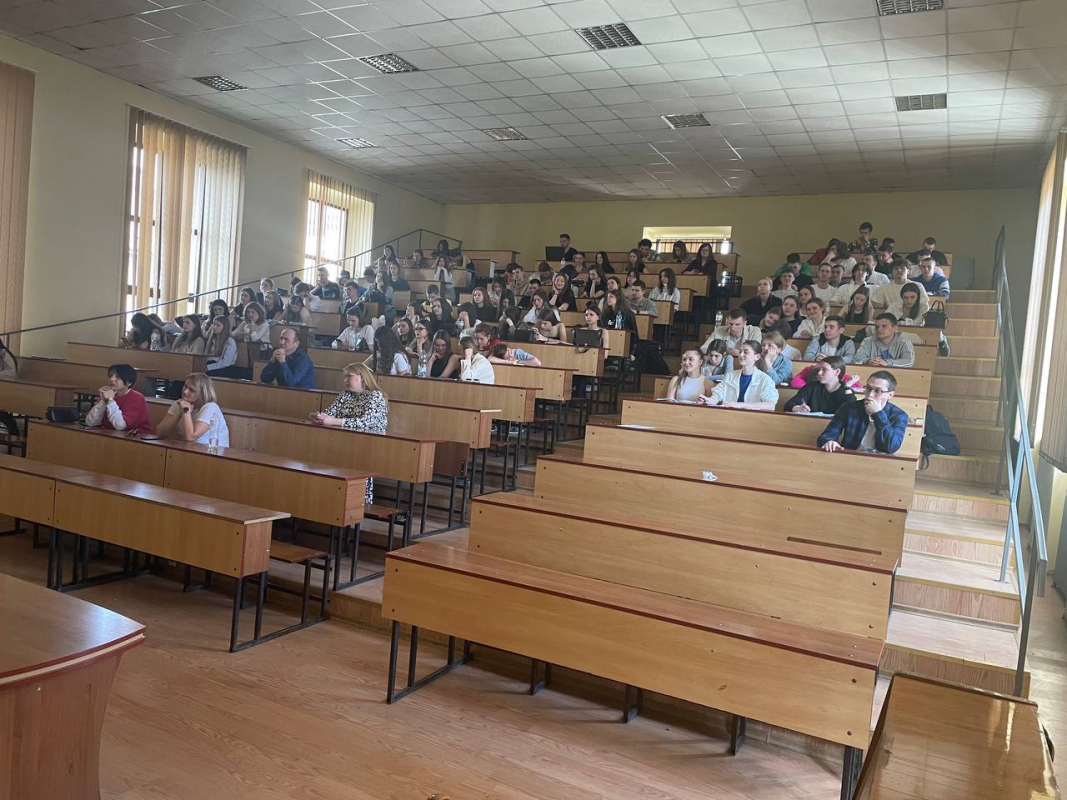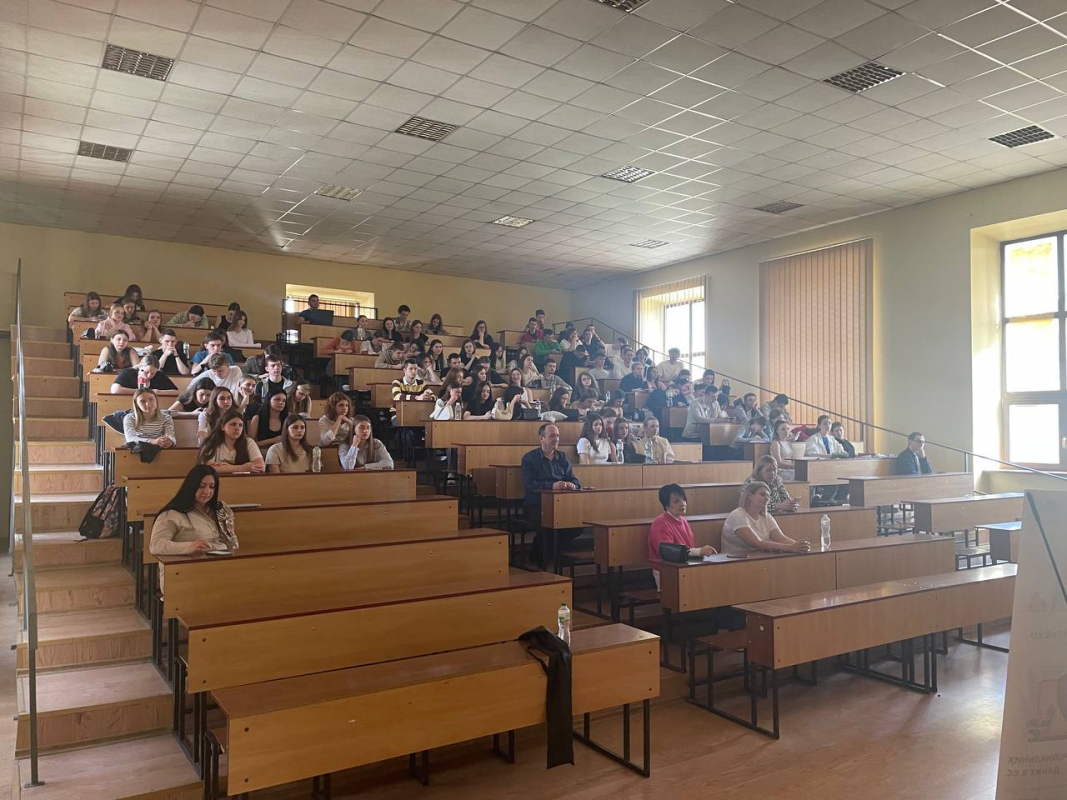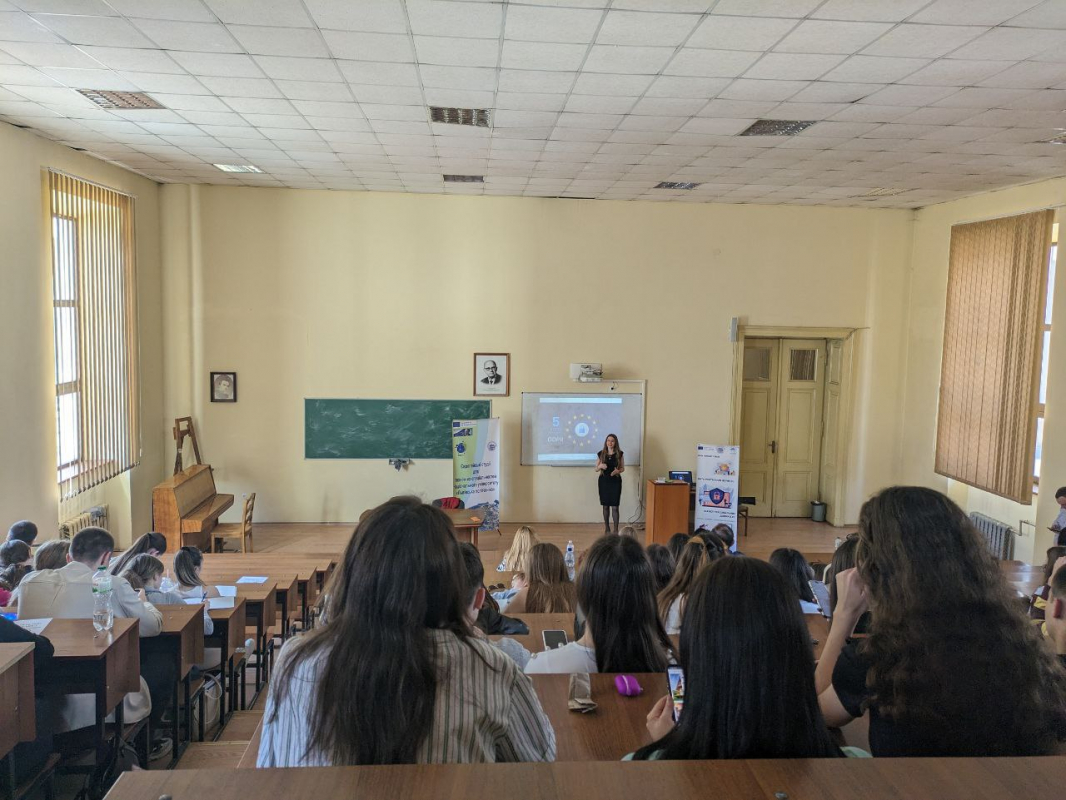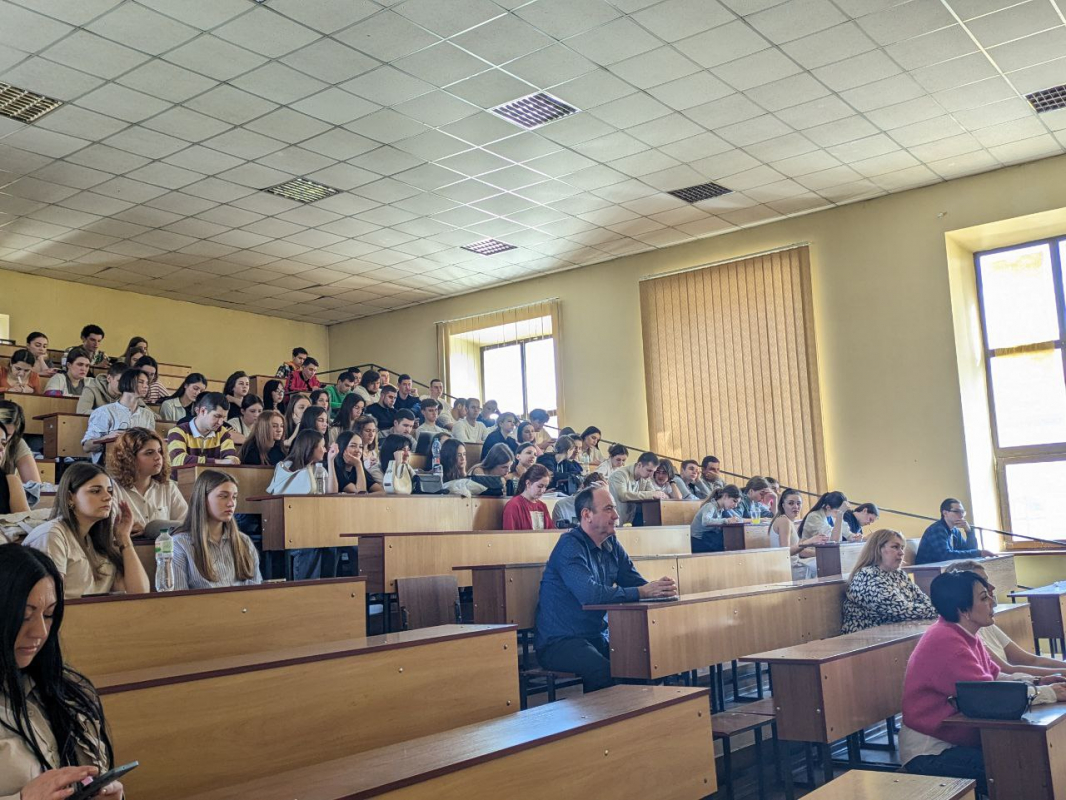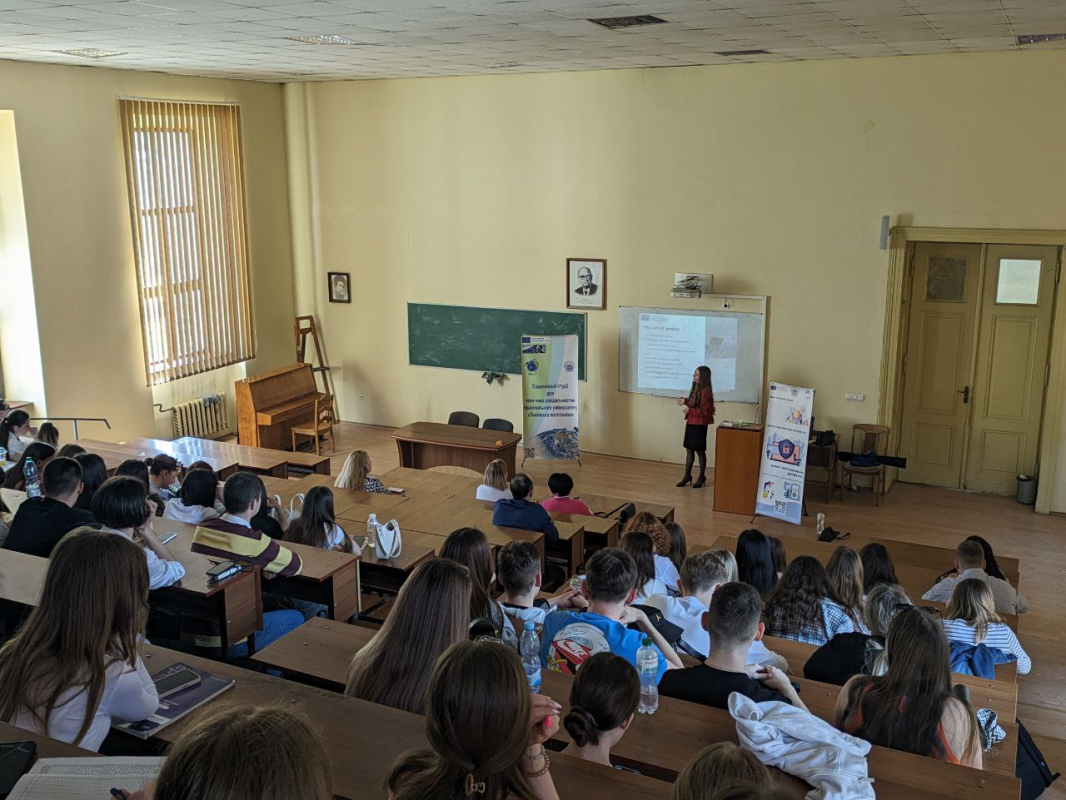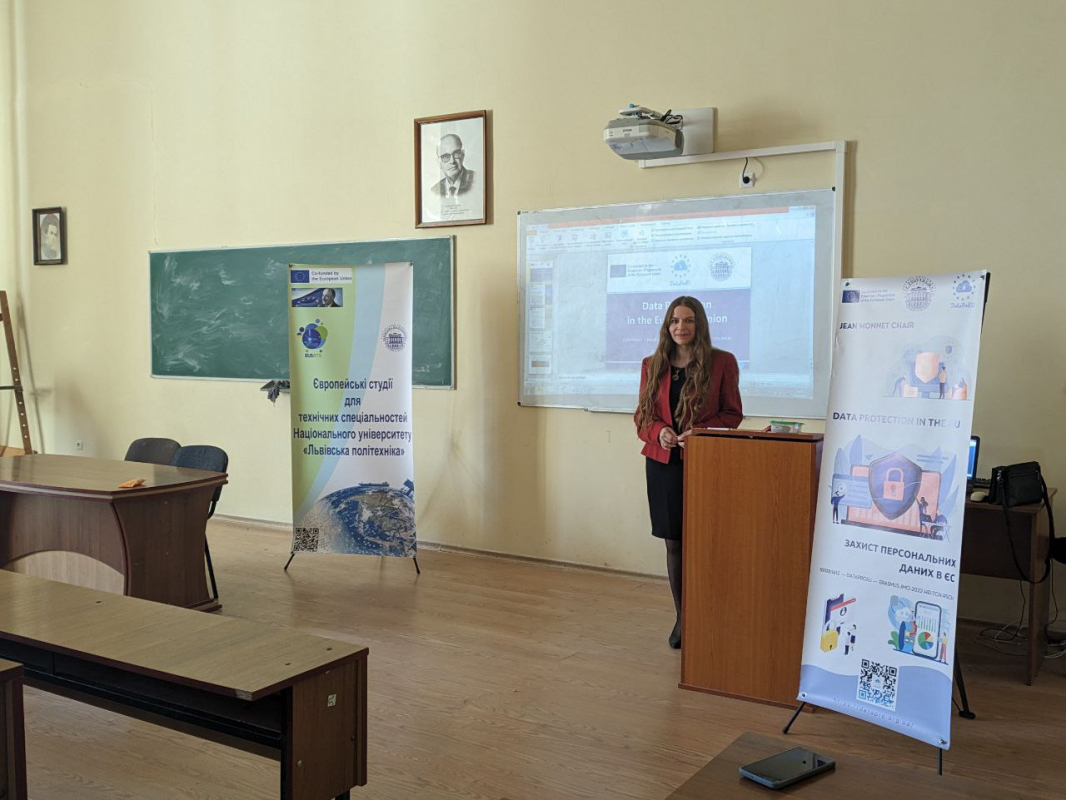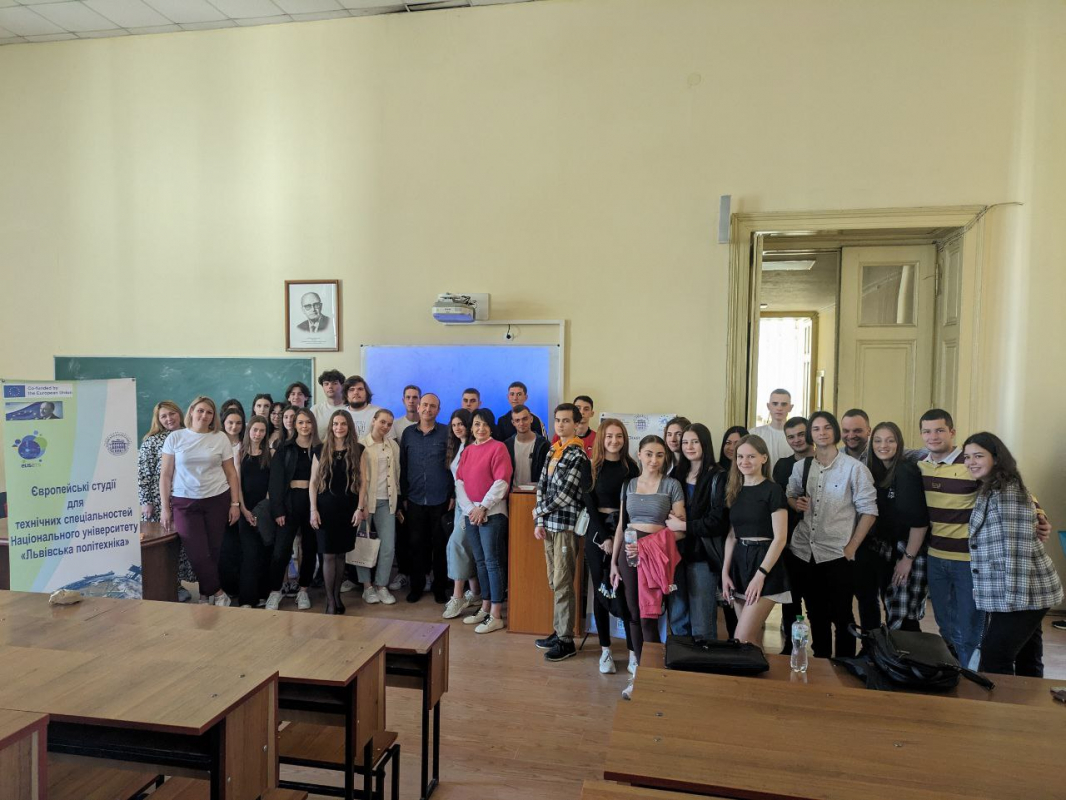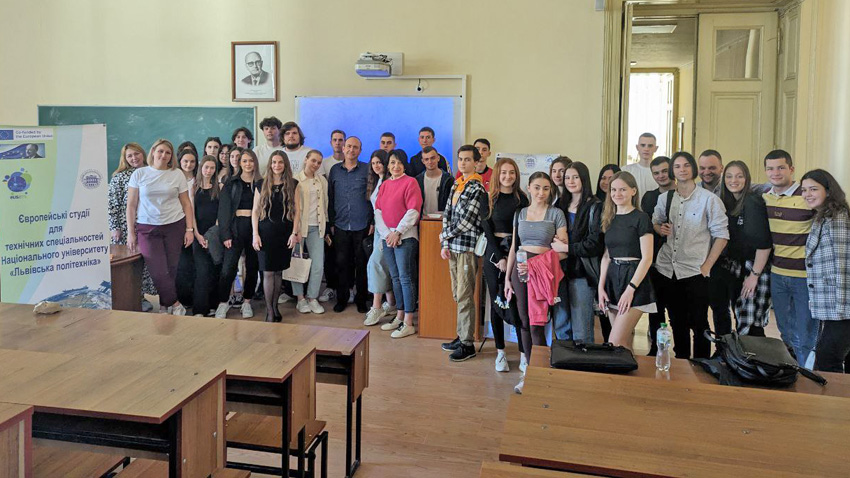On April 10, 2024, a meeting of the Eurolibrary took place, an event envisaged within the framework of the implementation of the project "European Studies for Technical Specialties at Lviv Polytechnic National University (EUSTS)", which is implemented with the support of the EU Erasmus+ Jean Monnet Program, activity: Eurolibrary series.
The speaker of the Eurolibrary today was Anastasia Doroshenko, PhD, Associate Professor of the Department of Automated Control Systems at the Institute of Computer Science and Technology, coordinator of a number of Jean Monnet projects at Lviv Polytechnic National University. The speaker presented extremely interesting and useful information on personal data protection based on the European experience.
During the event, Anastasiya Doroshenko focused on the key points of the title topic, such as: historical aspects of the problem of personal data protection, the first best practices of regulatory and legal regulation of this issue, examples of personal data mergers in different countries and by different companies, penalties for all kinds of violations. Attention is also focused on the classification of types of personal data. From the general list of personal data, special, sensitive categories of personal data are distinguished, the processing of which is allowed only in clearly defined cases.
These categories include personal data on: racial or ethnic origin; political, religious or ideological beliefs; membership in political parties and trade unions; criminal convictions; data related to health, sexual life, as well as biometric or genetic data.
The lecturer paid special attention to the issue of personal data protection in the European Union. For example, Anastasiia Doroshenko drew attention to the European Union regulation aimed at ensuring the protection of personal data of European Union citizens and regulating the processing of such data by companies - GDPR (General Data Protection Regulation), which entered into force on May 25, 2018.
This regulation establishes the principles of data processing; the specifics of user consent to such processing; the rights of users regarding their personal data; details the procedure for collecting, processing and storing such data for supervisory organizations, etc. The liability for violation of the GDPR deserves special attention, as the sanctions are quite severe.
The speaker also emphasized the importance of the principles that should be followed when processing personal data, such as: legality and fairness; legitimate purpose; adequacy, appropriateness (relevance) and proportionality (non-redundancy) of personal data in relation to the legitimate purpose; accuracy (reliability), relevance of personal data.
Anastasiia Doroshenko's speech aroused considerable interest, as 142 participants registered for the event and more than 113 attended, including students of various specialties, teachers, and EUSTS project participants from the departments of Social Communications and Information Activities, Political Science and International Relations, and Electromechatronics and Computerized Electromechanical Systems. The participants actively asked questions, expressed their positions and attitudes on the issues reflected in the study. The main focus of the questions was on the protection of personal data at Lviv Polytechnic National University, as well as those international companies that have been affected by penalties for non-compliance with the principles of personal data protection.
The EUSTS project team thanks all the participants of this event and continues to work on preparing other equally interesting events on topical issues of Ukraine's European integration and cooperation with the European Union. We invite everyone to join our events!
